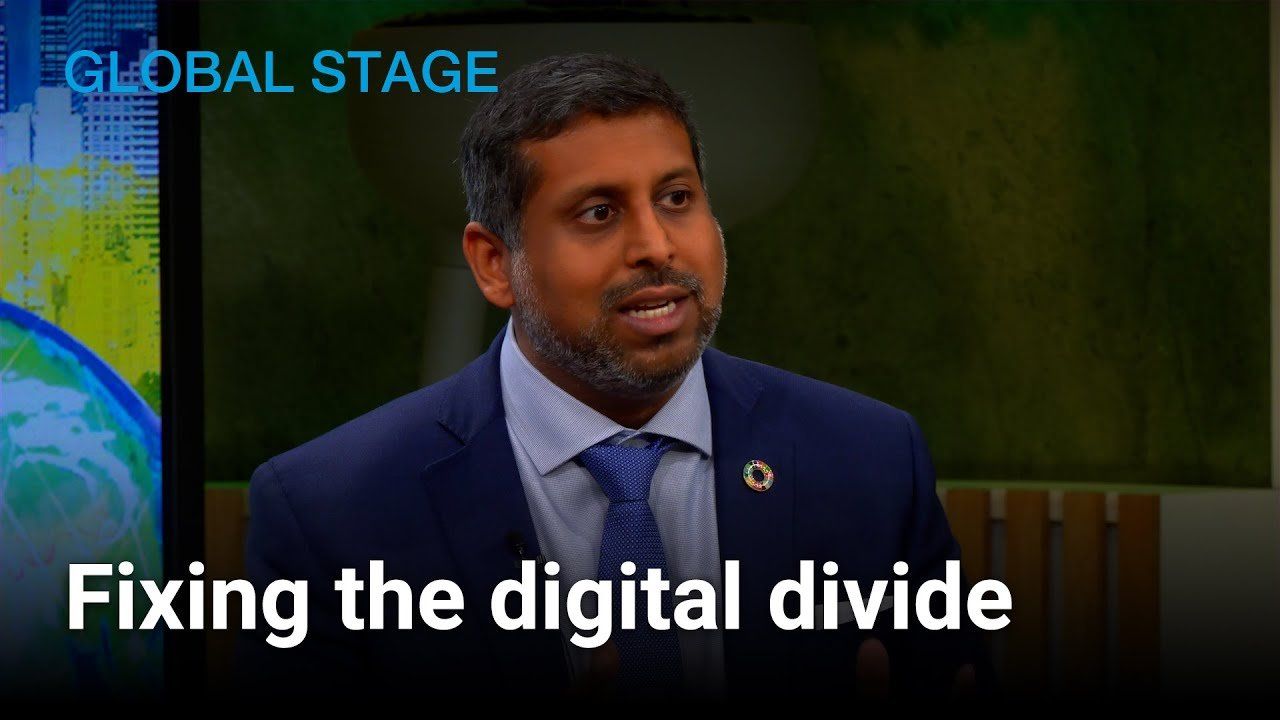
The world is fast becoming increasingly digital, with 60% of global GDP driven by digital participation, but over two billion people still lack basic connectivity access.
Vilas Dhar, a leading activist for a more equitable tech-enabled world, emphasizes three elements contributing to this divide: connectivity, data gaps, and technical capacity.
“Access is a fundamental right and not something to be solved by delivering a last mile piece of fiber or connectivity.” he commented during a Global Stage livestream event at UN headquarters in New York on September 22, on the sidelines of the UN General Assembly.
Dhar also acknowledges the growing concern of artificial intelligence and the question of who will lead regulation.
“We live in a world where AI is in every headline, and we absolutely acknowledge that the vast majority of AI capacity is held in private sector tech companies. This is in and of itself a digital divide.”
The discussion was moderated by Nicholas Thompson of The Atlantic and was held by GZERO Media in collaboration with the United Nations, the Complex Risk Analytics Fund, and the Early Warnings for All initiative.
Watch the full Global Stage conversation: Can data and AI save lives and make the world safer?
- Should internet be free for everyone? A Global Stage debate ›
- The fight to “connect every last person” to the internet ›
- COVID upended the job market & focused employers on skills ›
- 2 billion new internet users joined in 5 years but growth is uneven ›
- US-China tech tensions: the impact on the global digital landscape ›
- The digitalization divide: opportunities and challenges in emerging markets ›